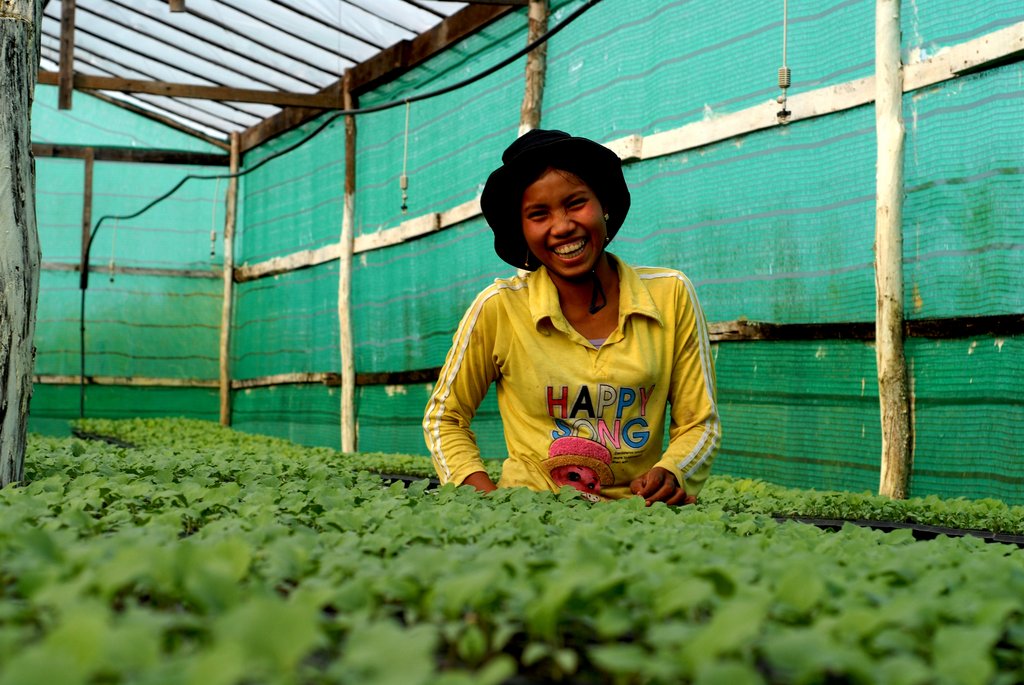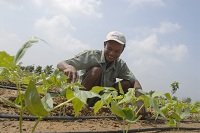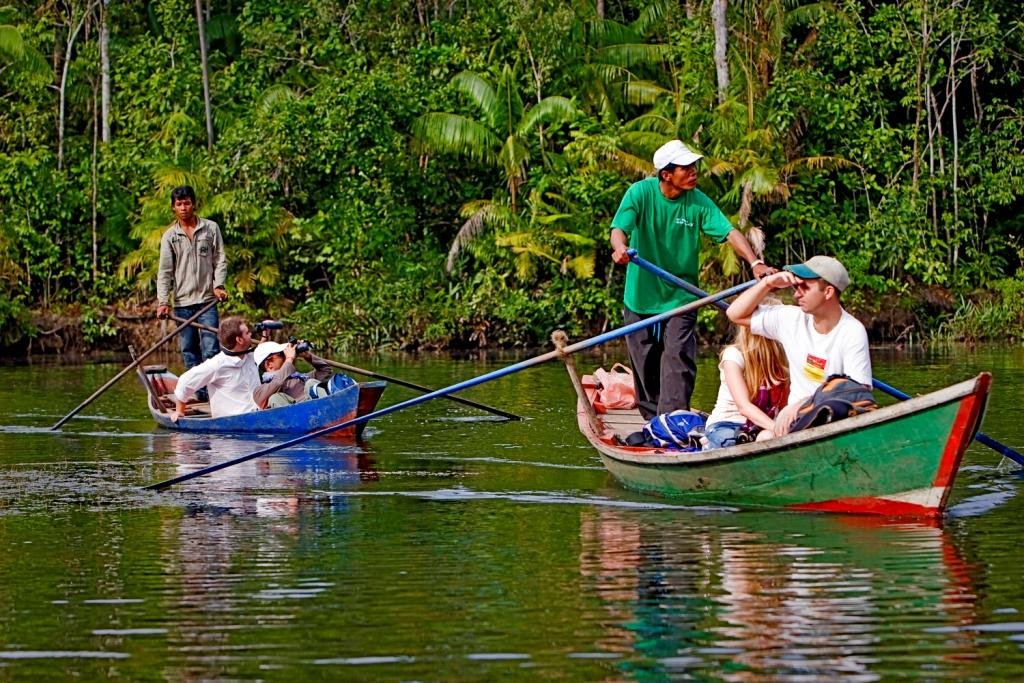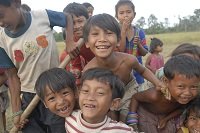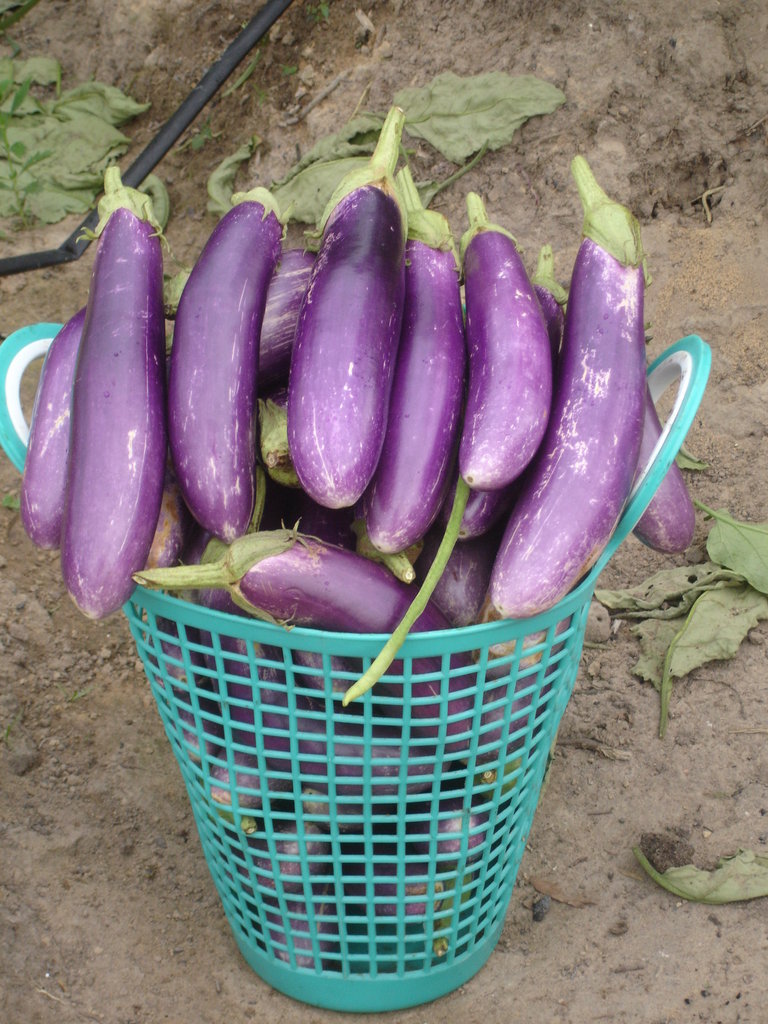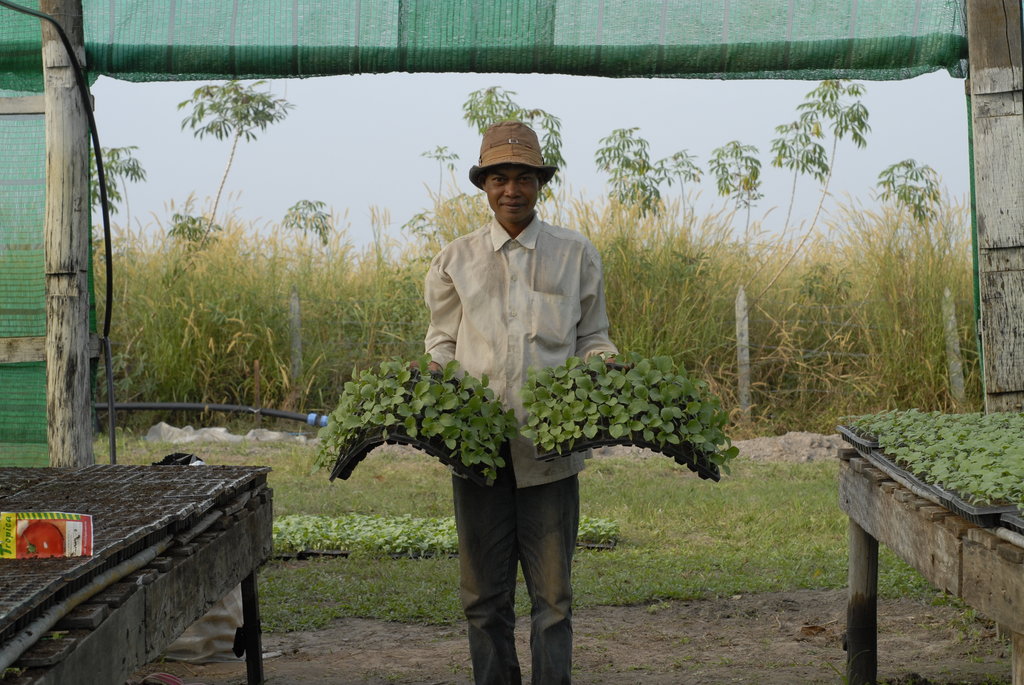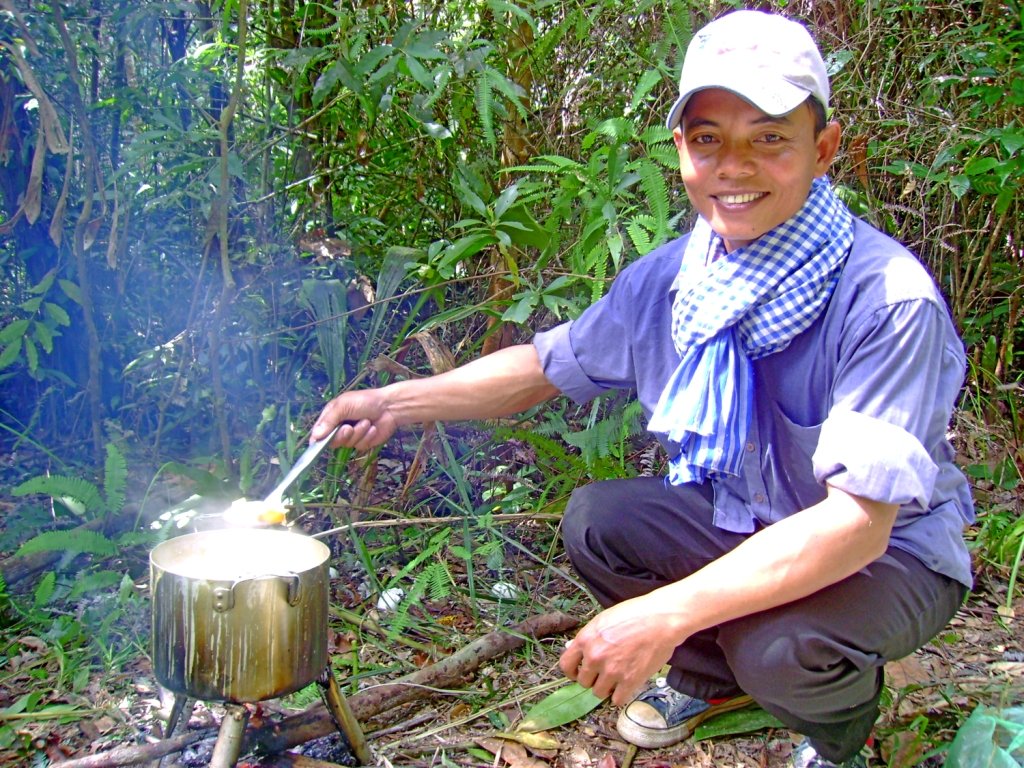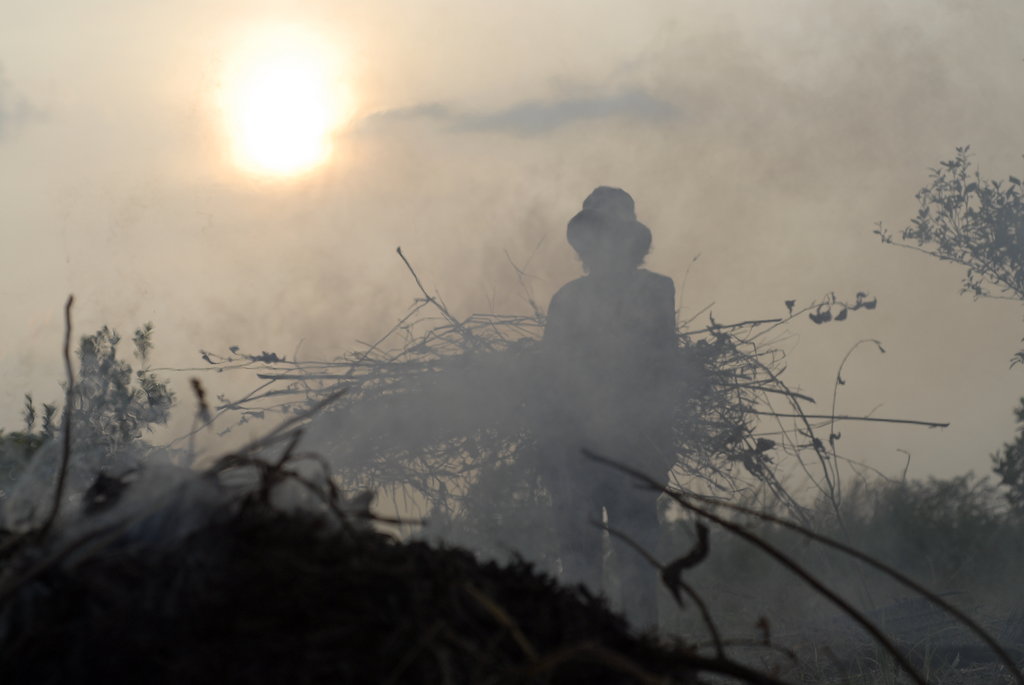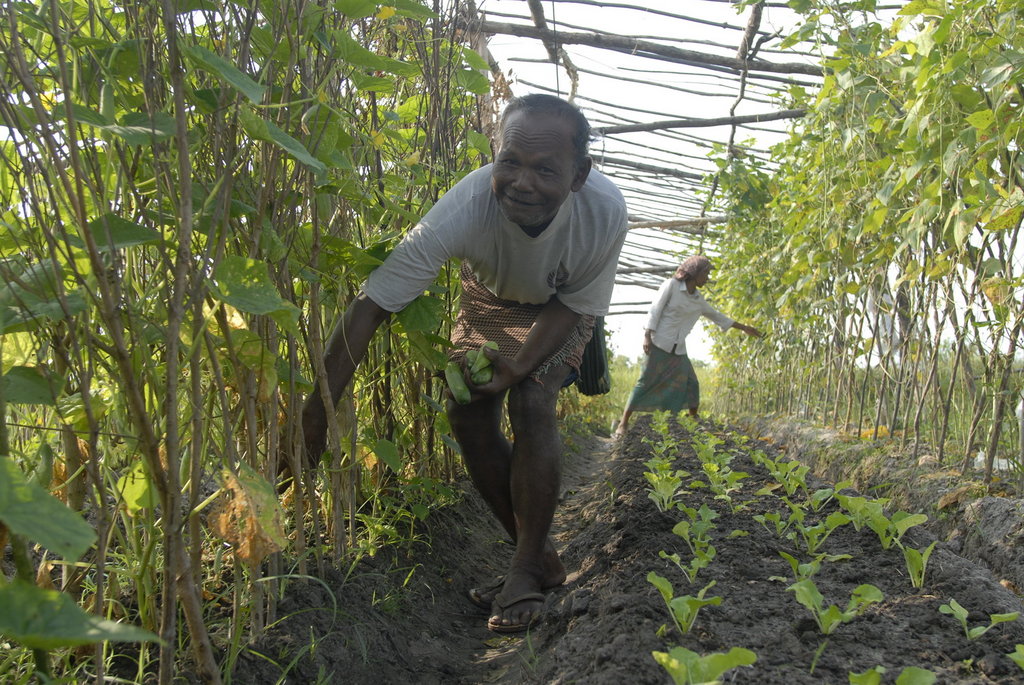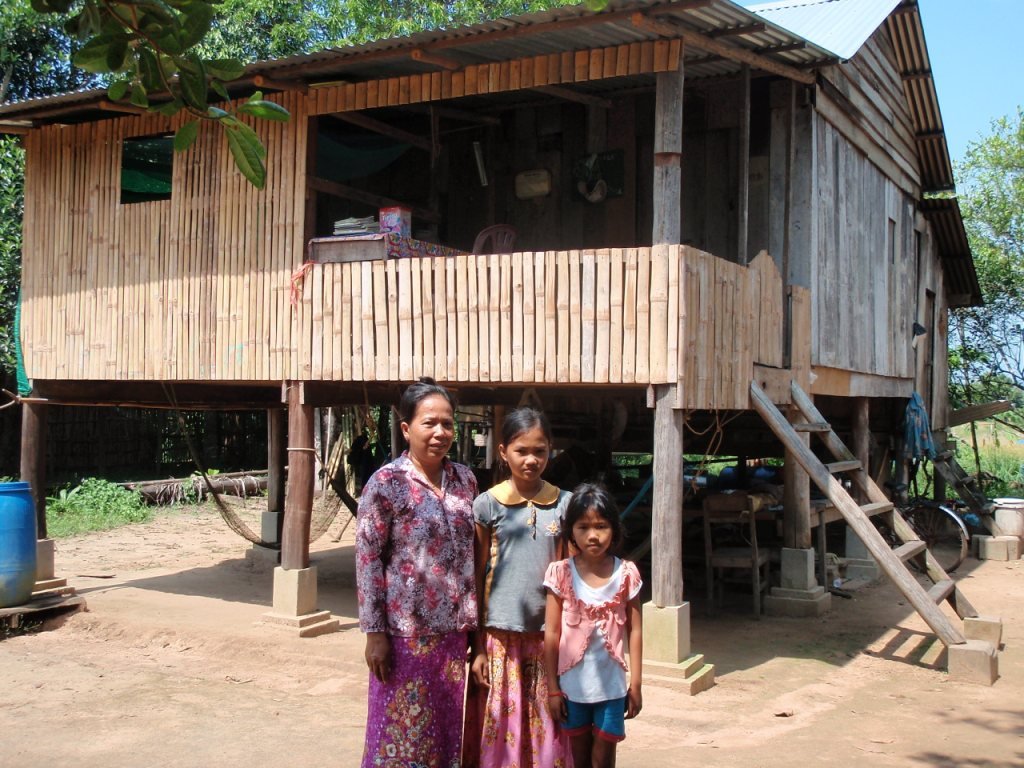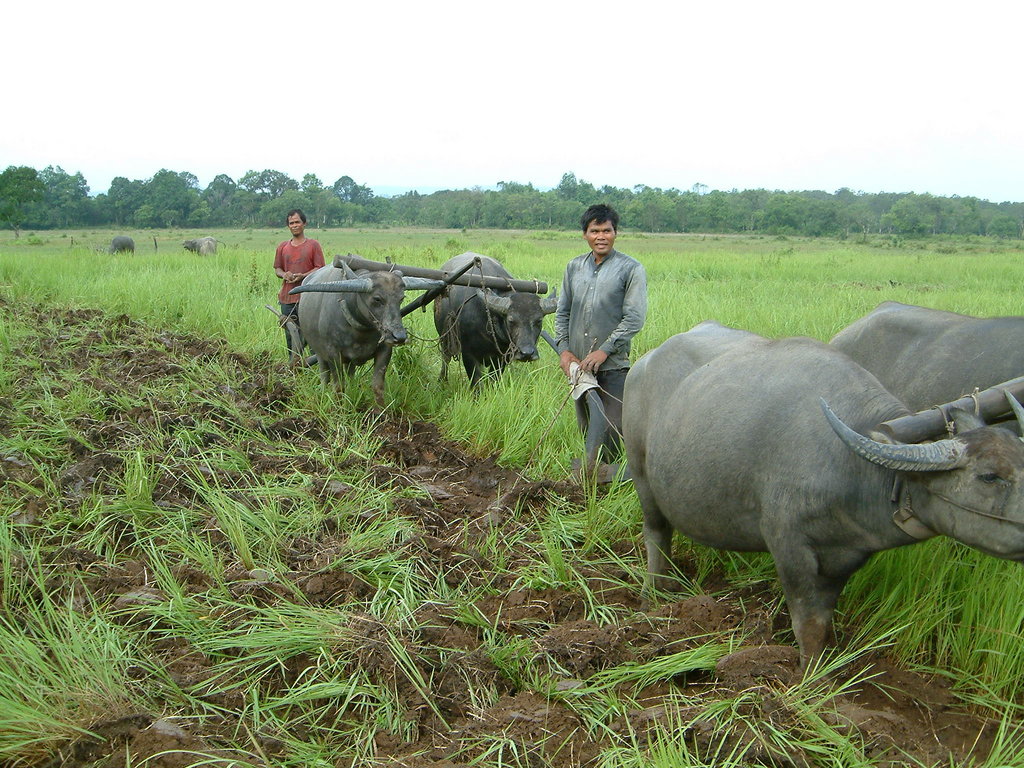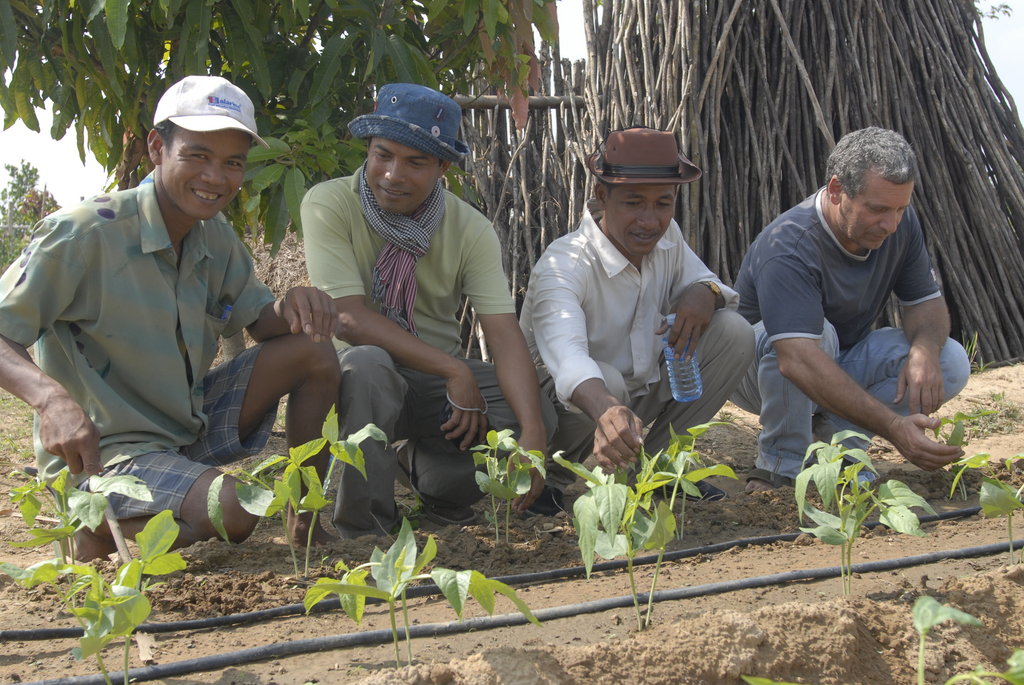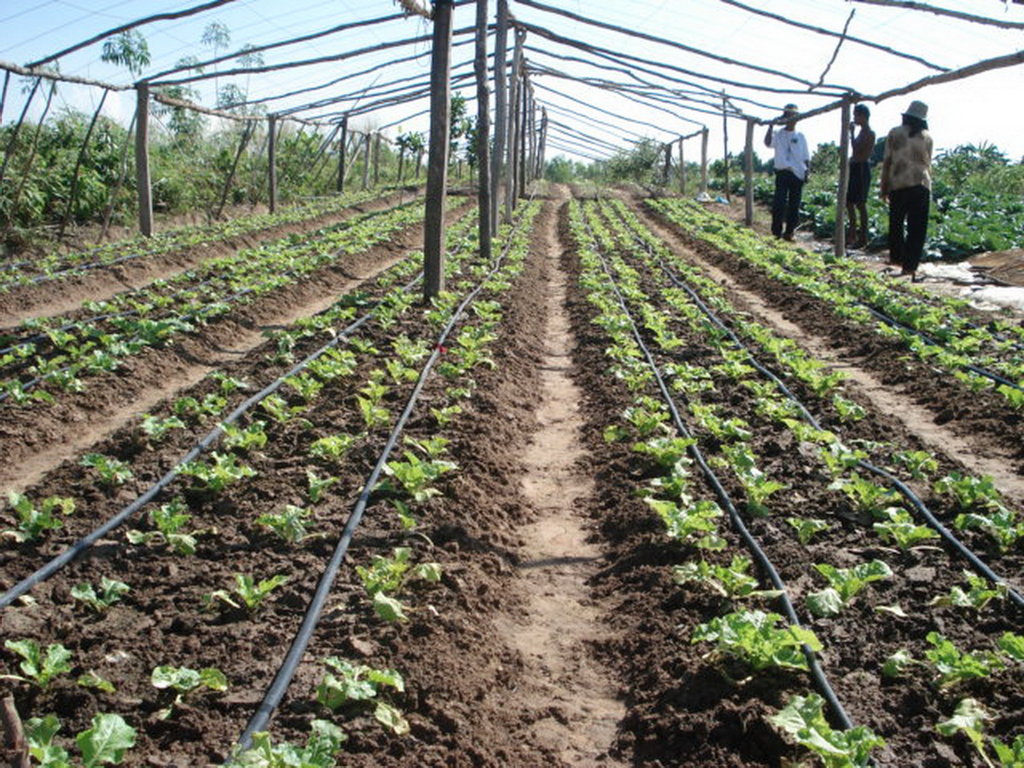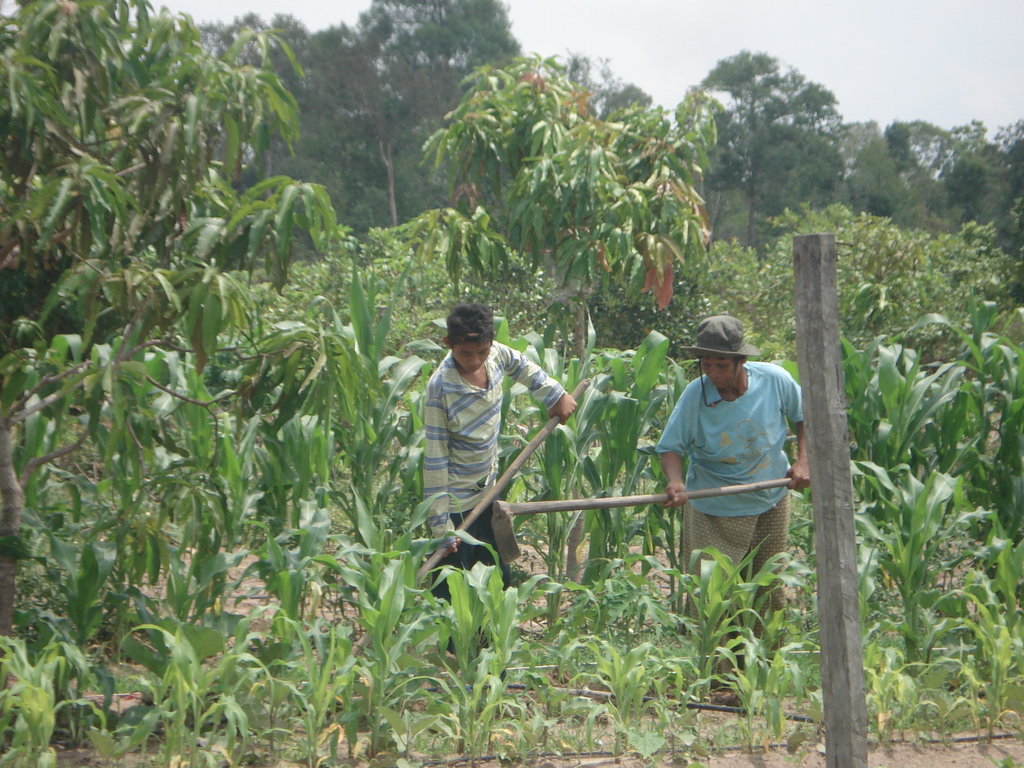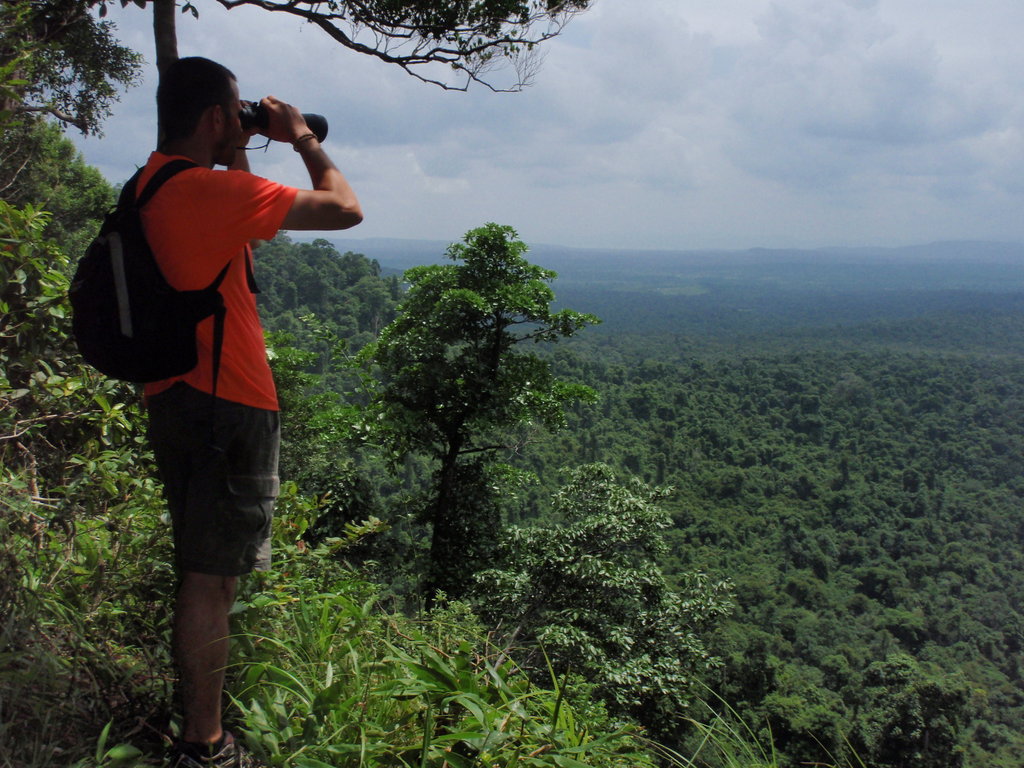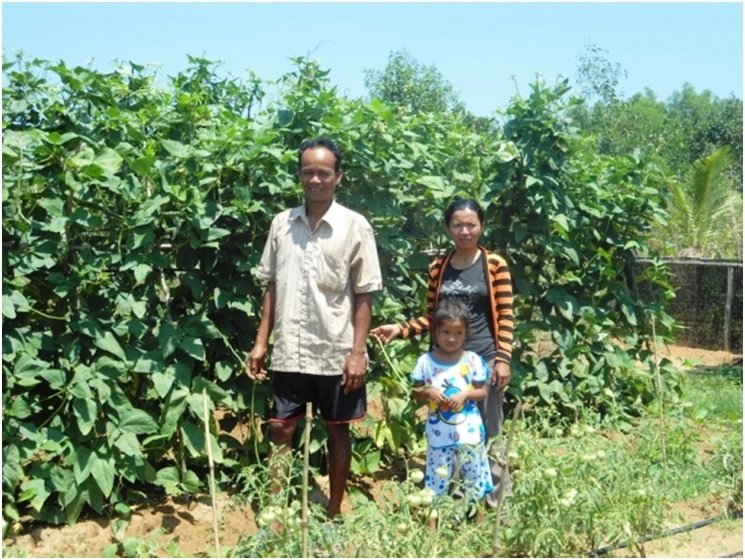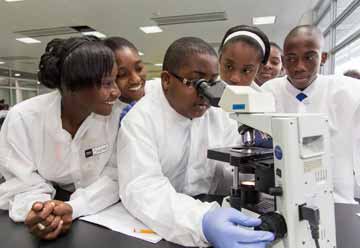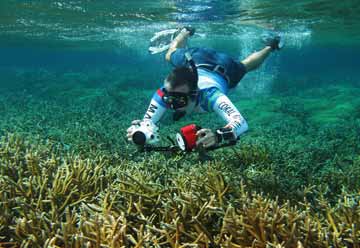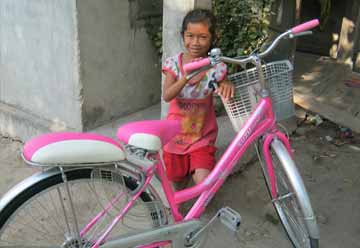Meas Samon lives a quiet and determined life as a farmer at Sovanna Baitong. He not only works hard on his land, but is a leading advocate for environmental protection in his community. This was not always the case for Meas Samon. Before coming to Sovanna Baitong, he worked as a logger in Preak Thanong, cutting down trees for a Thai company from 1995-1997. With few other opportunities available, the money was too enticing to turn down. One cubic meter of log was priced at 100 Baht ($3.44), and Meas Samon would easily bring in as much as 20,000 Baht ($688) during the dry season. He was among over a thousand workers hired by the company, plodding along, logging for survival and unaware of the damage being done to the ecosystem. There was no prohibition back then, he said, and many poor migrants came to work.
When the logging concession was terminated by the government in 1997, Meas Samon was out of a job. With no other options, he cleared land in Preak Thanong and began cultivating rice, sugarcane and other crops. To supplement his slash-and-burn farming practices, he also poached wildlife. Barely getting by, Meas Samon continued this precarious lifestyle until Wildlife Alliance staff offered him an alternative livelihood in Sovanna Baitong. He and his wife accepted this opportunity to begin a new life doing permanent agriculture, and moved their family to the village in 2004. They were one of 187 families that decided to do the same.
Working with Wildlife Alliance’s Community Agriculture Development Project (CADP), Meas Samon found leadership opportunities that would never have been available to him otherwise. He took full advantage of the training and capacity-building interventions offered by the project team of agronomists and community developers. He learned various agricultural skills and techniques, such as growing vegetables and fruit trees using a low intake water drip irrigation system, proper land preparation, composting, and improving the soil. He combined these new skills with hard work, always making his field an excellent example of sustainable agricultural production in the community. His hard work paid off when he was recognized as a model community member and elected chief of the village by the families of Sovanna Baitong. He holds this position with great regard, and dutifully attends all commune and district meetings, ensuring that his village is justly administered and their environment protected.
Meas Samon’s transformation at Sovanna Baitong has been remarkable. He believes it was through Wildlife Alliance’s intervention that he came to truly understand the impact of deforestation on biodiversity, and has now resolved to protect Cambodia’s remaining forest. He regrets his share of destruction in the past, and disclosed to us a few lines of verse that he often shares with his friends and fellow villagers.
“I speak what people truly do.
They don’t give a thought or care.
The darkness of their ignorance covers their own motherland.
They clear the forest, destroy elephants and tigers’ home, birds are without nests.
Hunters search with dogs, put traps, make wildlife shiver and bolt to another country for escape.
They shoot, stab, and kill without mercy or trace.
Future generations will know animals in the wild only by name”






